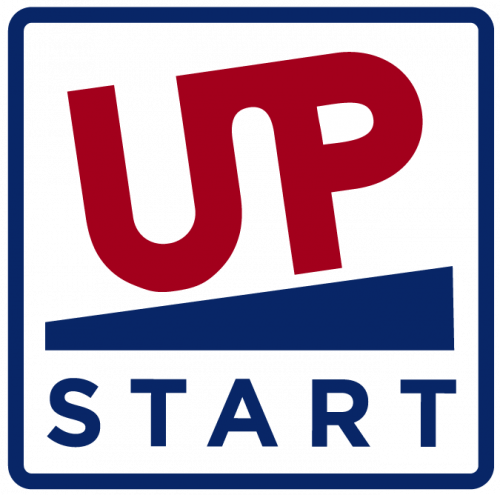We provide a suite of products and services to incubate the development of early-stage technology-based businesses as they make their way towards commercial success. PCI Ventures actively seeks entrepreneurs to lead our companies, and investors to provide funding for our portfolio of new ventures in development.

UPstart offers a wide array of services to assist entrepreneurial faculty members with the company formation and development process. UPstart smooths the path to future success by working closely with faculty members to create a commercial opportunity for their technology through a new venture.
1.
Invention
2.
Company Creation
3.
Entrepreneur
4.
Partners
5.
Funding
6.
Set Up Operations

UPadvisors provides support to companies that operate independently and want to leverage the resources of the PCI Ventures team, services, programs, and network to help navigate the challenges of an early-stage startup. PCI Ventures provides a Company Formation Handbook and advises UPadvisors companies during Weekly Office Hours.

Venture WarmUP is designed to assist faculty prior to starting a company as they explore different options for technology development and commercialization. Program participants may choose to work with PCI to pursue licensing or R&D alliance opportunities, start a company through PCI Ventures, start a company on their own (or with an outside partner), or simply continue with additional research.
Read about successful companies in the PCIV portfolio here.
Ready to get started? Contact PCIVentures@lists.upenn.edu
PCI Ventures provides valuable services to newly formed UPstart companies:
Market Research Support
PCI Ventures pairs companies with Penn student teams from Wharton Snider Center Venture Consulting, Penn Undergraduate Biotech Society, PBG Healthcare Consulting, Locust Bioventures, and others for market research support. Projects include analysis of addressable markets, the competitive landscape, comparables, and pricing strategies and financial projections, to help companies develop a compelling business strategy.
Commercialization Grant Support
PCI Ventures provides comprehensive support to founders applying for Small Business Innovation Research (SBIR) and Small Business Technology Transfer (STTR) programs, to produce high-quality proposals that are well positioned to secure these non-dilutive grants. Available through the NIH, NSF, and nine other federal agencies, these grants enable companies to establish technical feasibility, collaborate with research institutions, and support commercialization activities.
Development of Marketing Materials
PCI Ventures creates websites, as well as marketing materials for conference and investor presentations. Logo design is available on a limited basis.
Entrepreneur Coaching
PCI Ventures works with company CEOs to help them perfect the content and delivery of their pitches to effectively communicate with investors and strategic partners.
Executive-Level Recruitment
PCI Ventures introduces founders to entrepreneurs with the experience necessary to build the team, strategy, and infrastructure of the company. We want our faculty to partner with the right entrepreneur to create a path to future success.
Fundraising Strategies
PCI Ventures collaborates with the founders to develop strategies and timelines for seeking funding opportunities. Potential avenues of funding include, but are not limited to, angel investors, economic development funds, venture capital funds, accelerators/incubators, and government grants.
Interns
PCI Ventures matches entrepreneurs with highly qualified students looking for an internship with an early-stage company. For students looking to get involved in one of our portfolio companies, click here.
IP Strategy Development
PCI Ventures pairs companies with Penn students from the Detkin Intellectual Property and Technology Legal Clinic to develop IP strategies, with projects spanning patentability assessment to Freedom-to-Operate analysis.
Legal Agreement Templates
PCI Ventures provides template documents covering most of the legal documents that may be required for venture creation and operation, including operating agreements, management contracts, subcontract agreements, etc.
Mentor-in-Residence Program
The Mentor-in-Residence (MIR) program pairs startup companies with accomplished entrepreneurs and industry leaders who serve as informal advisors. Jump to that program below.
Preferred Vendor Relationships
PCI Ventures has relationships with several service providers that are comfortable and willing to work with newly-started companies that have very limited operating capital.
Strategic Partner Outreach
PCI Ventures actively markets the company’s technology to potential partners as a method of providing alternative funding sources and advancing the pace of innovative research.
Ready to get started? Contact PCI Ventures
UPstart Success Story
Quantaras (formerly QRS) was founded by Jayaram K. Udupa, Ph.D., and Drew A. Torigian, M.D. of the Medical Image Processing Group at Penn Medicine. While at Penn, they developed an innovative technology that would allow for advanced body-wide analysis of medical images for clinical and research purposes.
Read Success StoryThe benefits of UPadvisors are:
The Company Formation Handbook featuring:
- Company Formation
- Company Agreements
- Management Team
- Funding Sources
- Obtaining Government Funding
- Other Company Considerations
Mentoring advice from the PCI Ventures team
Access to PCI Ventures’ legal document template library
LLC agreement preparation by PCI Ventures team
Access to preferred partners who are willing to work for deferred fees
Access to marketing opportunities for the company through PCI Ventures events
Ready to get started? Contact PCI Ventures
UPAdvisor Success Story
Nia Therapeutics develops neural interfaces to restore memory function after brain injury or neurodegenerative disease. Nia’s foundational brain stimulation technology was created at Penn by a team led by Dr. Michael Kahana, the Edmund and Louise Kahn Term Professor of Psychology, with funding from the Defense Advanced Research Projects Agency (DARPA).
Read Success StoryOther PCI Ventures Programs
PCI Ventures Weekly Office Hours
PCI Ventures hosts virtual office hours every Wednesday from 9am to 12pm. Each week, a member of the PCI Ventures team will be available to answer business questions on topics ranging from company formation and legal agreements to benefits and insurance. Get started early and sign up for a session today!
Mentor-in-Residence
The Mentor-in-Residence (MIR) program pairs companies with accomplished entrepreneurs and industry leaders who serve as informal advisors. The Mentors participate in the development of PCI Ventures portfolio companies and Pennovation Works companies, providing advice on business strategy, market penetration, and fundraising. The Mentors also bring with them a wide network of contacts that the companies will be able to leverage.
All Mentors operate under non-disclosure and non-compete agreements.All PCI Ventures portfolio companies and Pennovation Center members are invited to take advantage of the MIR Program.To arrange a meeting with a Mentor, please email us or sign-up for PCIV virtual office hours so we can pair you with the best fit.
Meet the Mentors
Frequently Asked Questions
What is a startup company and why choose to create one?
A startup is a new business entity formed to commercialize inventions through the development and eventual sale of products or services. Forming a startup company is a type of commercialization strategy; other commercialization strategies include licensing intellectual property or creating a contractual relationship with an established business. A few key factors to consider, when deciding whether to form and launch a startup company or develop a business relationship with an existing company,are:
- the stage of the technology and the level of current product or service development risk;
- the amount it will cost to develop a product to market versus the potential investment return;
- the potential for multiple products or services from the same technology;
- whether or not there is a sufficiently large competitive advantage and target market;
- the amount of room for new entrants in the market;
- potential revenues or funding sources sufficient to sustain and grow a company; and
- alignment with potential collaborators and/or acquirers.
In partnership with Penn inventors and entrepreneurs, PCI can help to evaluate these and other factors.
Who decides whether to form a startup?
The choice to establish a new company for commercializing Penn-owned intellectual property
is typically a mutual decision made by PCI and the inventors of the technology in question. PCI provides a variety of new venture products and services to faculty and staff through its PCI Ventures group. A faculty or staff member at Penn can establish a business without the assistance of Penn as long as the faculty member and the business otherwise are compliant with Penn’s policies. A business created in partnership with Penn, or through independent means, must still take a license to any Penn-owned IP it intends to use.
How does PCI facilitate startup formation and acceleration?
The PCI Ventures team within the Penn Center for Innovation provides alternative paths for faculty, staff, and students who have an interest in being entrepreneurial, but do not have the time or resources to pursue that interest on their own. PCI Ventures has built two separate programs, UPstart and UPadvisors, designed to meet the varying needs of different projects with different levels of service available from their team. PCIV’s suite of services and hands-on support promote entrepreneurship activities and help to incubate early-stage technology-based businesses as they make their way towards commercial success.
What assistance and resources are available to the company founder?
When a business is created by working with the PCI Ventures team, Penn enters (through PCI) into a company formation agreement with the founder(s) and may provide:
- Company formation services to establish a legal private entity;
- Management team recruitment;
- Template legal agreements;
- Business development (e.g. market research, marketing, IP strategy);
- Capital acquisition (including UPtheOdds, a full support grant submissions program);
- Third party service providers on a deferred fee basis (payroll, bookkeeping, insurance, etc.);
- Development of a funding strategy, introductions to potential investors, and access to investor showcases; and
- Business operations services
In addition to the extensive resources of PCI Ventures, PCI also administers the Penn I-Corps Site, an accelerator program funded by the NSF, where teams interested in starting a business can explore the feasibility of their idea before launching a company.
What role does a founder usually play in a company?
Faculty founders generally may not take on fiduciary roles for the companies that they help to create (e.g. board seats, officer positions, full-time employment arrangements, etc.), but faculty founders do typically serve as advisors or consultants for the company, often chairing or participating in the Scientific Advisory Board of the company, while also maintaining their position at Penn. In very rare instances, a faculty member may choose to leave Penn and join the startup in a full time capacity.
In many cases, the faculty advisory role is shaped with the startup investors and management team based on the founder’s expertise and interests. As the company matures, additional investment is required, and the founder’s role may change. It is important to recognize that a faculty member’s ownership interest in or other relationships with a startup may create a conflict of interest that may affect the faculty member’s participation in research and other activities at Penn.
Faculty involvement in a startup that constitutes a significant financial interest as defined in the University of Pennsylvania Policy on Conflicts of Interest Related to Research must be disclosed as specified in the policy. The University of Pennsylvania Conflict of Interest Standing Committee (CISC) reviews potential conflict of interest in any of the faculty member’s research that is related to the financial interest. Student founders and postdoctoral fellows may choose to join the startup upon graduation or departure from Penn, but often do not have the experience or business skills to serve as the company’s sole manager.
How much of my time and effort will it take?
Starting a company generally requires a considerable amount of time and effort. Until the startup team is identified and engaged, the faculty or staff member will need to be deeply involved in the company formation process. After the management team is in place, effort is reduced, but still required during fundraising (e.g. grant writing, partner or investor pitches and discussions), in transferring technology from the University to the business, and in University processes such as conflict of interest disclosure and reviews.
Can Penn accept equity in the company?
Penn can accept equity for its efforts to help establish the company and/or as part of the financial terms of a license for any early-stage business requiring a license from Penn to practice Penn-owned intellectual property rights. Equity may be substituted for other types
of license consideration, such as up-front licensing payments, that are often difficult for startups to bear. It is also a way for Penn to share some of the risk, and hopefully the upside, associated with the startups. A decision to take equity must make sense for both Penn and the company. In businesses created with the help of PCI Ventures, the University owns founders’ equity in the entity.
Will Penn pay for incorporating a startup company?
Penn covers virtually all of the startup costs for entities created through the UPstart program managed by PCI Ventures. The only direct financial cost to the founder is a $100 reimbursable deposit into the business bank account PCI Ventures helps to open.
What legal assistance is needed in creating a startup?
Legal assistance may be needed to register the new business and to establish its operating papers, which define the ownership and governance of the business. Corporate counsel may also be needed to negotiate agreements such as employment contracts, license agreements, non-disclosure agreements, etc.
In addition to corporate counsel, the startup may have its own intellectual property counsel to assist with corporate patent strategy, especially if the company will be involved in an area of crowded IP. The startup’s counsel must be separate from Penn counsel, though it is advisable and recommended that the corporate counsel and Penn patent counsel work together to coordinate their respective activities.
Companies formed through PCI Ventures have facilitated access to a variety of start-up service providers, including attorneys, who will often work on a deferred fee basis. In addition, the companies have full access to the legal document library that contains more than 40 documents available for use.
What are the Intellectual Property considerations?
In cases where intellectual property is owned by Penn, a small business must obtain a license from Penn in order to practice the intellectual property rights regardless of whether or not the business was created with the assistance of PCI or PCI Ventures. Utilizing Penn’s help in launching a business does not constitute an automatic license to practice University-owned intellectual property.
How is my company related to Penn?
Companies are private entities independent of the University, even in cases when PCI Ventures is involved in launching the company. Penn may be a shareholder in the business but it does not control or own the business. Conversely, the small business does not have automatic access to the Penn research enterprise or administrative support simply because Penn is an equity holder in the business. All relationships, such as sponsored research, must be documented in a separately negotiated agreement.






